EECS commemorates Juneteenth with event celebrating excellence and diversity in tech
On June 19, 2024 the University of Michigan Electrical Engineering and Computer Science (EECS) Department held its fifth annual—and first in-person—Juneteenth celebration. Over 200 enthusiastic community members braved the heat to celebrate the historic holiday that commemorates the end of chattel slavery in the United States.
The celebration was spearheaded and emceed by Herbert Winful, University Diversity and Social Transformation Professor, Arthur F. Thurnau Professor, and Joseph E. and Anne P. Rowe Professor of Electrical Engineering at U-M.
“We are gathering today to celebrate Black engineers and scientists who are making a difference in their fields and in the broader society,” Winful told the community.
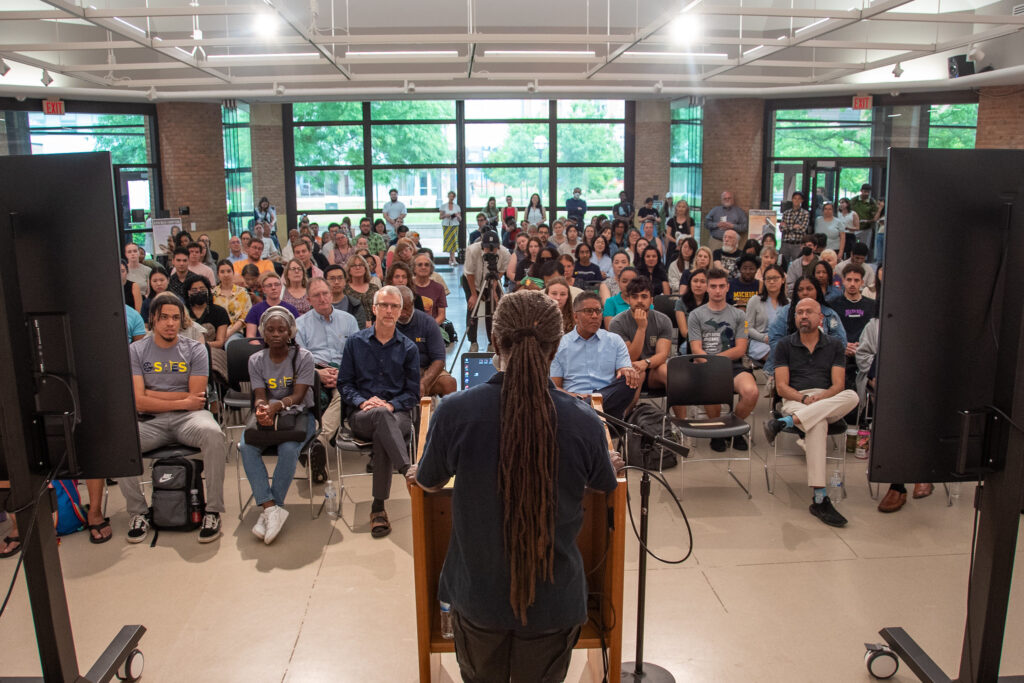
Following Winful’s opening remarks, EECS alum Michigan Lt. Gov. Garlin Gilchrist II (BSE CE/CS 2005) addressed attendees virtually for the third year in a row. “EECS plays a special role at the University of Michigan and throughout our states. You make an incredible difference in preparing a new generation of people-first leaders and professionals to demonstrate the Michigan difference,” he said. “Today, let us all recommit to the principles at the center of Juneteenth: freedom, justice, and equality for all. Let us ask ourselves how we can continue putting people first and building a brighter future for our state.”
Charles “Chaz” Phillips, a PhD student in the Marsal Family School of Education, explained the history and significance of Juneteenth. “Today, Juneteenth celebrates African American freedom and achievement with the goal of promoting and cultivating knowledge and appreciation of African American history and culture,” he said.
Today, let us all recommit to the principles at the center of Juneteenth: freedom, justice, and equality for all. Let us ask ourselves how we can continue putting people first and building a brighter future for our state.
Lt. Gov. Garlin Gilchrist II
Micah Thorpe, Emma Dodoo, Dauda Audu, and Tolulope Lawal, PhD students in engineering and members of the Graduate Society of Black Engineers and Scientists (GSBES), presented an abridged reading of the Emancipation Proclamation.
Next, the audience enjoyed a moving live performance of “Lift Every Voice and Sing,” the Black National Anthem, sung by Amber Rogers, a graduate student in Voice Performance at the U-M School of Music, Theatre & Dance. Winful accompanied her on piano.
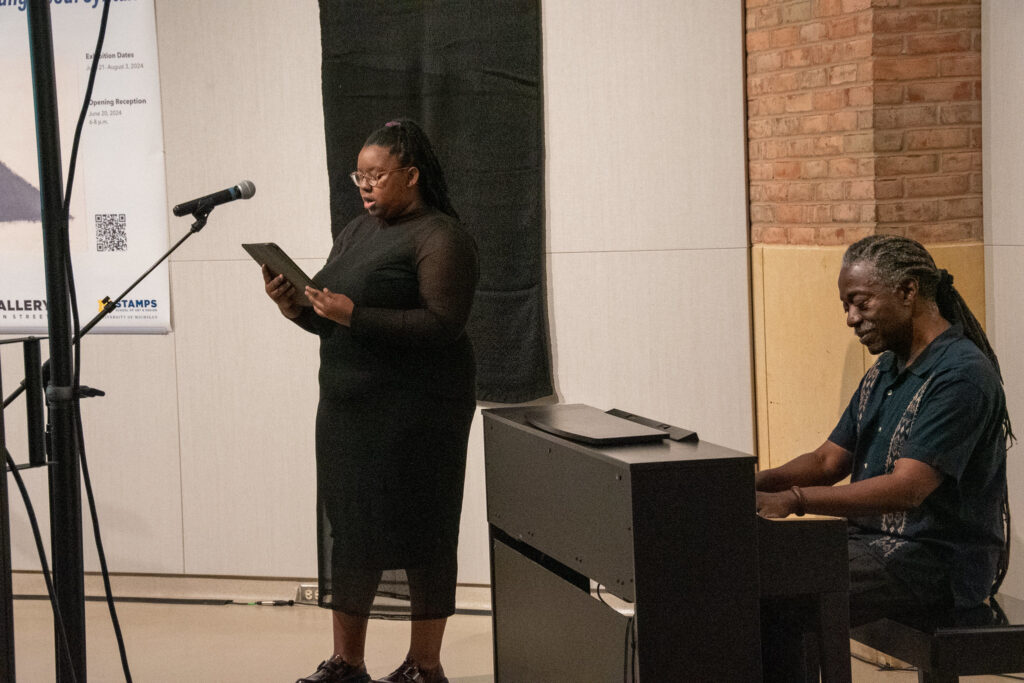
The Juneteenth celebration then proceeded to the main event of its program: presentations by two renowned EECS alums who embrace the people-first approach in their research, Shawn Blanton (PhD CSE 1995) and James Mickens (PhD CSE 2008).
Blanton, the Joseph F. and Nancy Keithley Professor of Electrical and Computer Engineering at Carnegie Mellon University, began by telling the audience about his appreciation for Michigan. “I’ve been a Wolverine for over half a century,” he said, to applause.
He talked about his research, focusing on a project called “EASE: Empowering Access for Social Equity,” which aims to eliminate barriers for marginalized communities to take advantage of the financial opportunities and resources available to them.
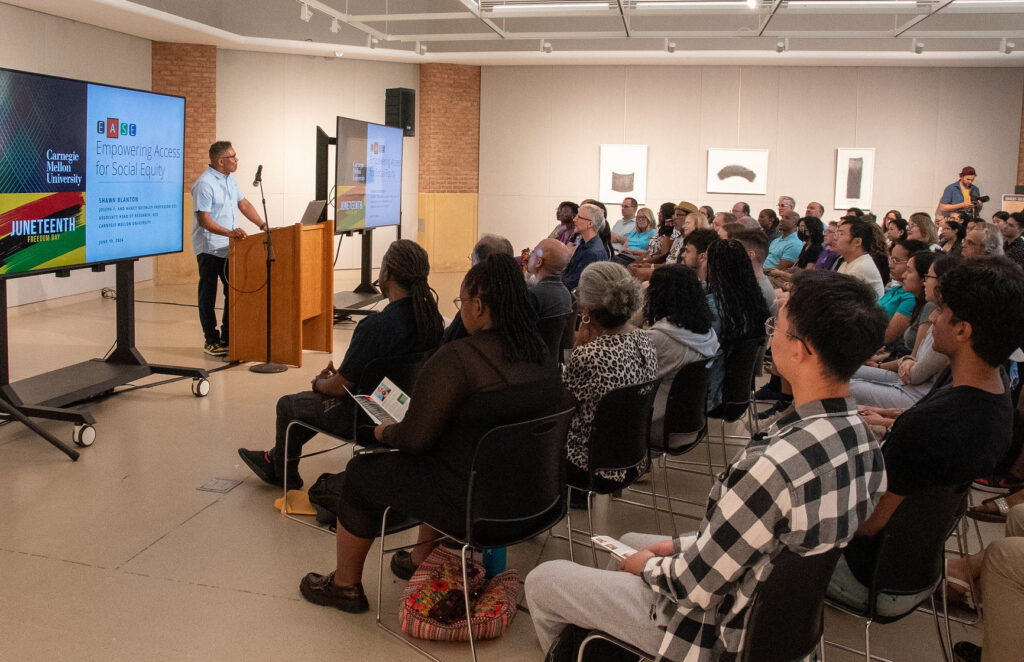
Mickens, the Gordon McKay Professor of Computer Science at Harvard University, filled his presentation, “Computers: Deep Ethical Dilemmas and Other Breezy Conversational Topics,” with humor, along with tips for undergraduate and graduate students. He also told the audience about some of his current research addressing the challenges of trust and safety in a diverse and decentralized social media “fediverse.”
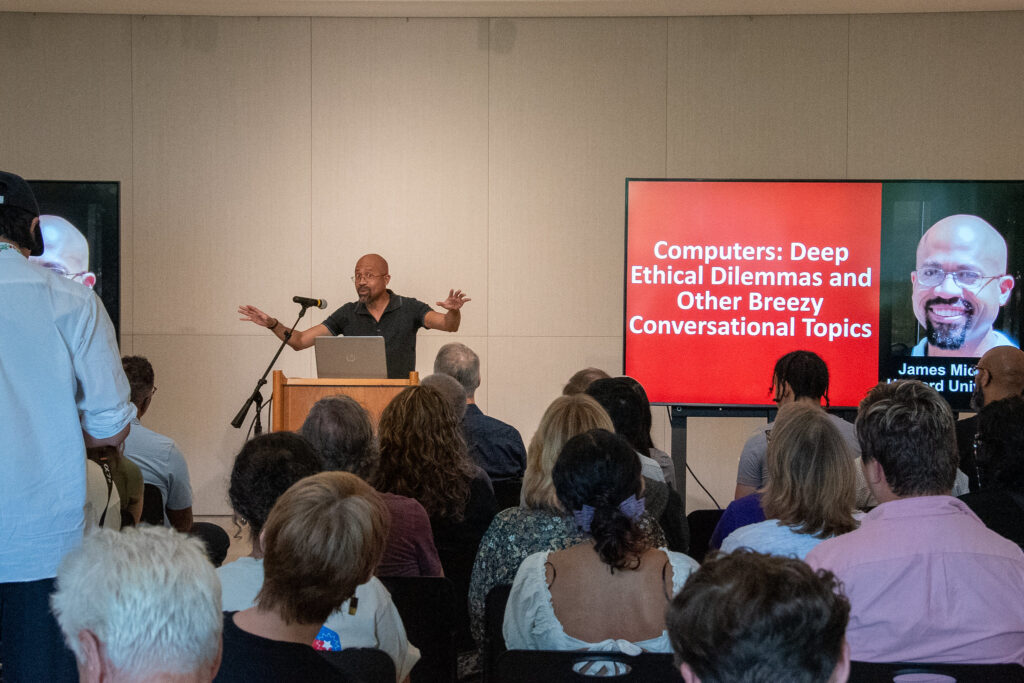
The final speakers were Atul Prakash, incoming Chair for Computer Science and Engineering and Jeff Fessler, William L. Root Collegiate Professor of EECS and incoming Interim Chair for Electrical and Computer Engineering, who delivered updates on their divisions’ respective progress in fostering supportive and diverse communities within EECS.
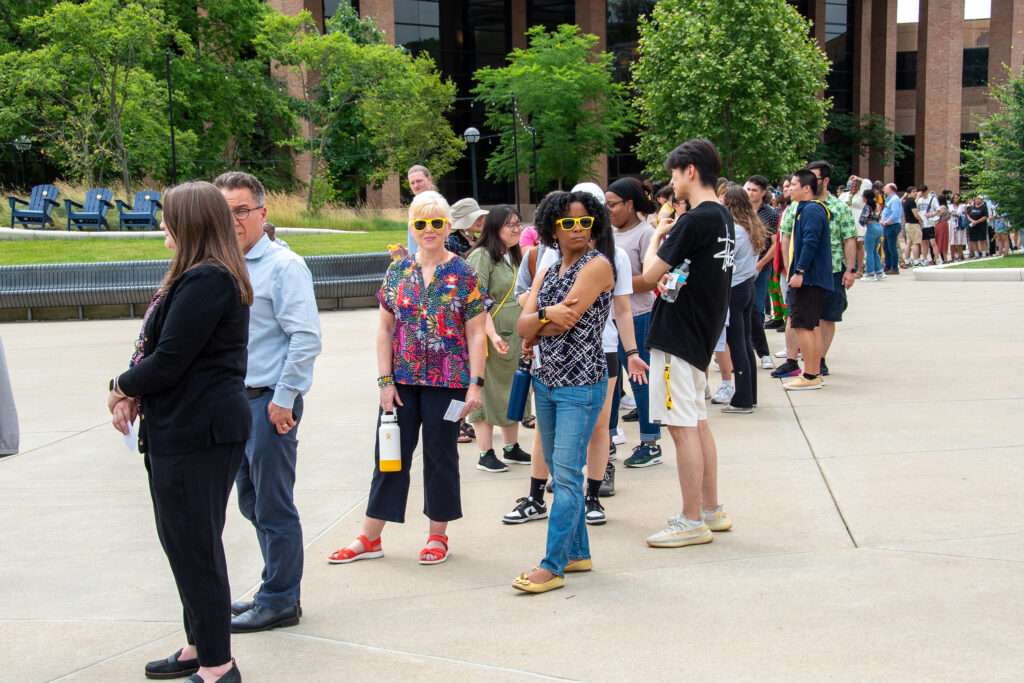

The Juneteenth celebration ended with lunch from two local Black-owned food trucks, Good Eats and Motor City Sweet Treats in the Gerstacker Grove. As community members mingled and waited for their food in the sunshine, they enjoyed a carillon performance by Tiffany Ng, associate professor of carillon and Chair of the Organ Department at the U-M School of Music, Theatre & Dance. The performance included the Midwest premiere of “In-Visibility,” composed by Emmy Award Winner Jasmine Arielle Barnes, a rendition of “Lift Every Voice and Sing,” and “An Evening Calm” by Charles Emmanuel Graves.
 MENU
MENU 
